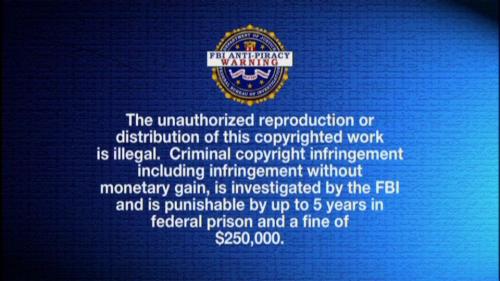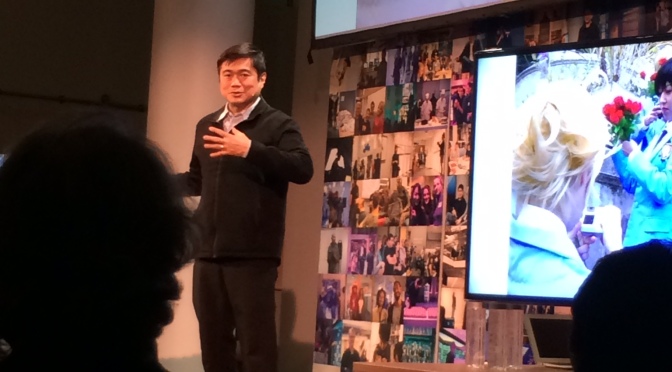Joi Ito gave a brief preamble to a gathering at Digital Garage in San Francisco today, Unlocking the Power of Japanese Content in Worldwide Markets.
He spoke about the history of remix culture and differences between Japanese and Western commercial attitudes towards fan fiction and derivative works. Historically, the act of reproducing someone’s work required the manifestation of that copy in a physical artifact which required an investment. If you made a mixtape you had to purchase the cassette and source the original music. If you shared a film, you copied it onto a VHS tape along with the scary FBI warning.

The act of copying something in the pre-digital days was a “trigger event” that could be codified into law and enforced.
When you had to pass around physical media, it cost money. Because of this cost, you needed to create a business to support duplication and distribution. When works became digital, the distribution costs went to zero and the need for a business to manage duplication and distribution went away.
In this new world, the enforcement of the trigger event became ludicrous. Joi reminded us that every time you browse a web site, your browser is making a copy of everything on that page. The act of copying something is fundamental to the infrastructure of the internet. Ownership is hard to enforce and, when done so, threatened the very relevance of the institutions that tried.
The software that runs a majority of the internet, was developed through commons-based peer production where no one institution owns the software.
Linux is not on anyone’s balance sheet. It is not part of anyone’s GDP.
Joi’s work with Creative Commons was an attempt to resolve this incongruence by simplifying the licensing contracts and baking it into the structure of the internet. What was interesting to him and the topic of the afternoon was the difference in corporate attitudes towards ownership of content between Japan and the United States. While Japanese manga culture welcomed derivative fan fiction works produced by their otaku followers, traditional US comic houses heavy-handedly squelched any adoration, killing off their core audience.
Walt Disney is famous for their enforcement of their copyright. I knew someone in Hong Kong who spent all their time touring the markets in Hong Kong and China serving notices to violators who sold unlicensed reproductions of Disney characters. Marvel, and DC Comics are no different. Copyright law is written in such a way that lack of enforcement can lead to forfeiture of rights. A publicly listed company has a fiduciary responsibility to its shareholders to enforce their copyright.
But the times have changed. Otaku and fan fiction culture is winning. Publishers that allow their fans to remix their brands enjoy a halo effect that is helping market them on social media channels. A stiffly isolated character is less likely to go viral than one that has been remixed to blend into an environment in tune with the context of its surroundings (more on that tomorrow).
Japanese law is written very strictly to enforce copyright but the honne of Japanese society looks the other way when a publishing house slips rough cuts to its fans to allow them to extend the storyline. The rest of the world is catching on and understanding the commercial benefits of a rabid fanbase.
This week’s news of Taylor Swift’s removal of her entire back catalog from Spotify is significant in that she is probably one of the last acts that will be able to do this and drive record commercial sales based on artificial scarcity. In the digital age it is not the artifact of the recording which drives revenue, it is the performance, either in live concert or in the contextual packaging of that recording with other works.
The mp3 is just meta-data to the (live music) event.
The Japanese have known the value of the otaku community for a long time. Pokemon started as a simple video game but grew into a media franchise through its community which it embraced. Western creators such as J.J. Abrams with the Lost TV series have benefited from large fan bases that carry their narrative far beyond the original creation. Wikia (Craig Palmer, CEO, was also a speaker at the conference) is positioning itself as a platform for these communities.
While original media from Japan may be limited to a fringe collection of weird game shows and cos-play conventions appreciated only by those outside Japan that can break through the difficult language and cultural barriers, the concept of remix communities as an important part of a brand’s success is taking hold in the West and driving commercial success to those that embrace it.

Leave a comment